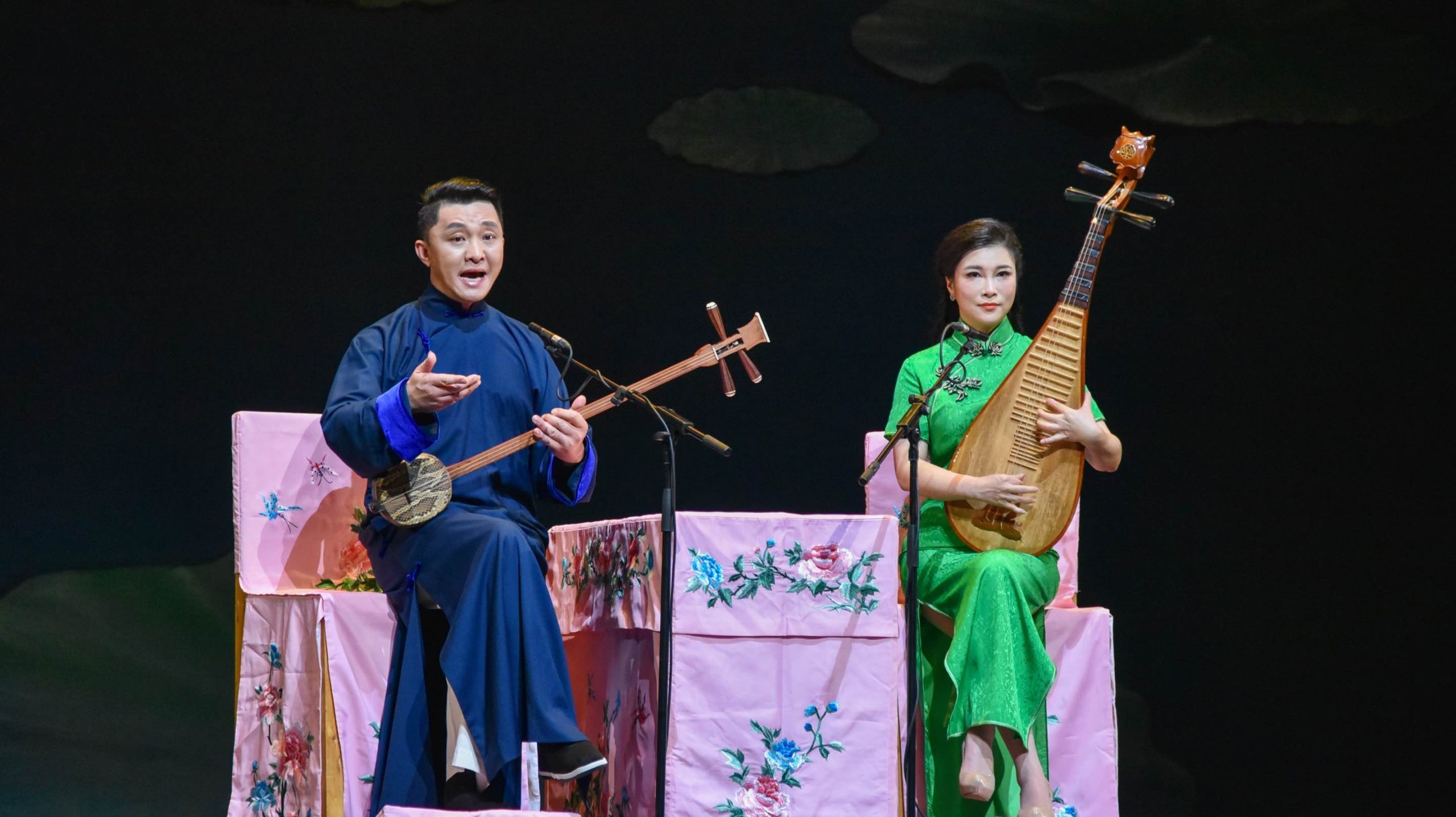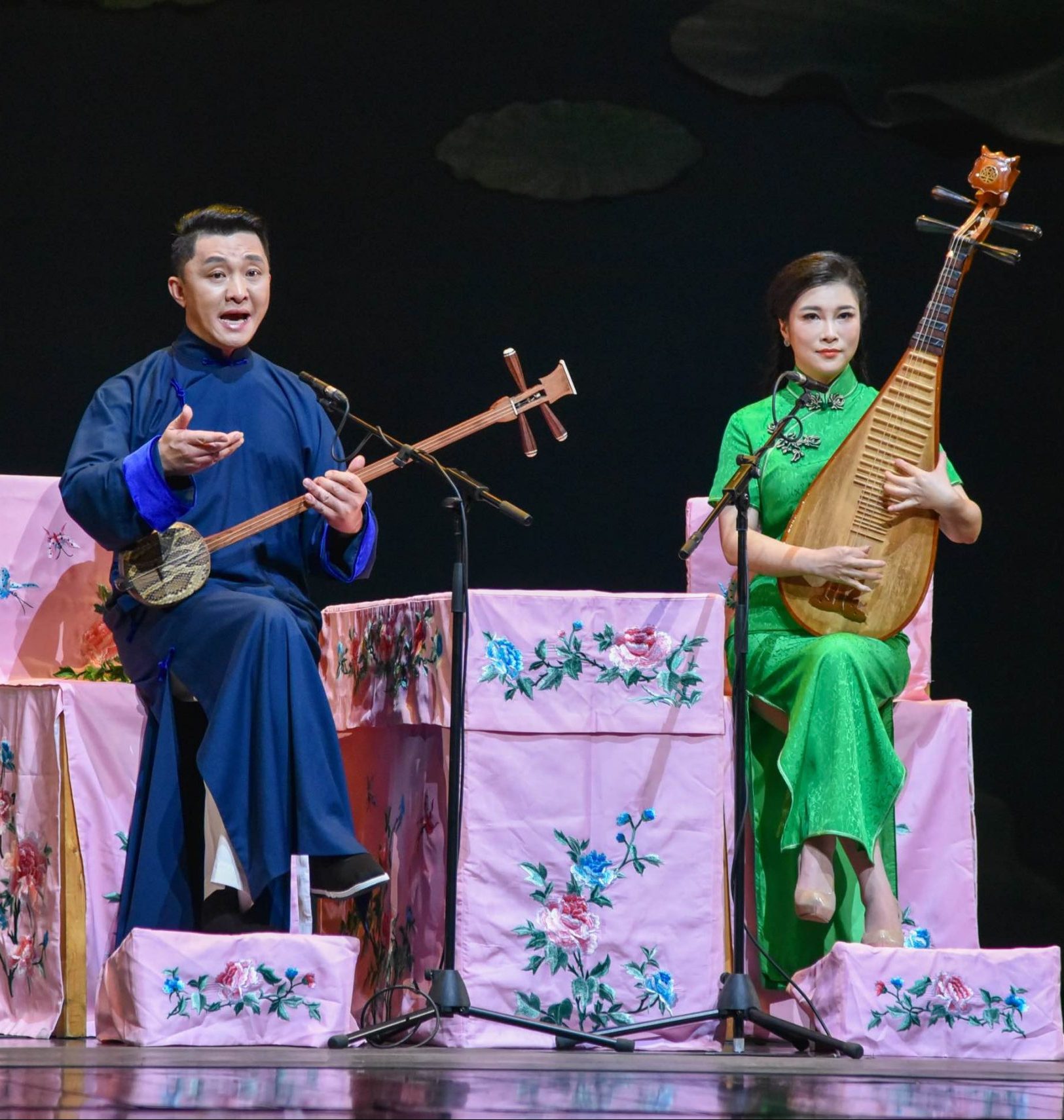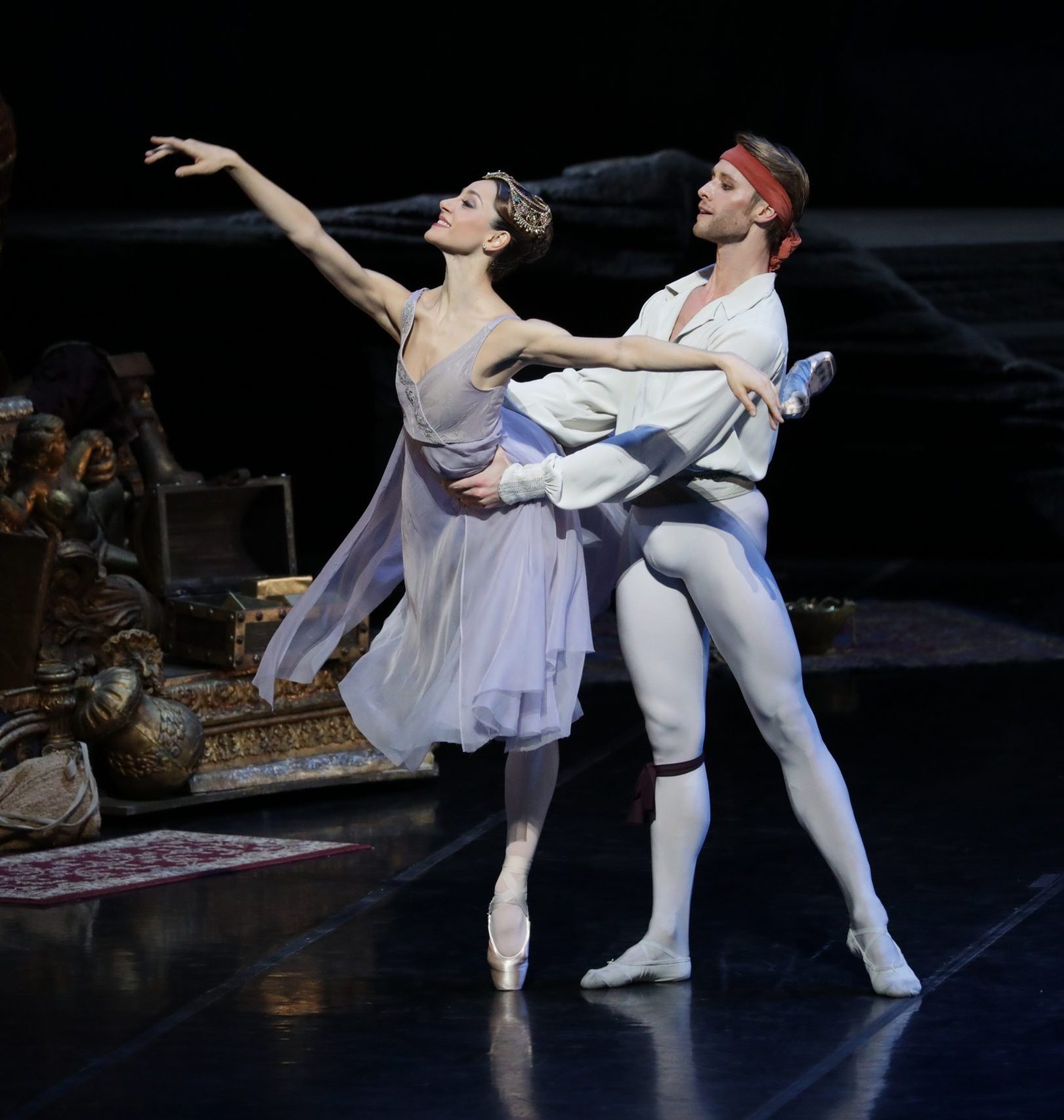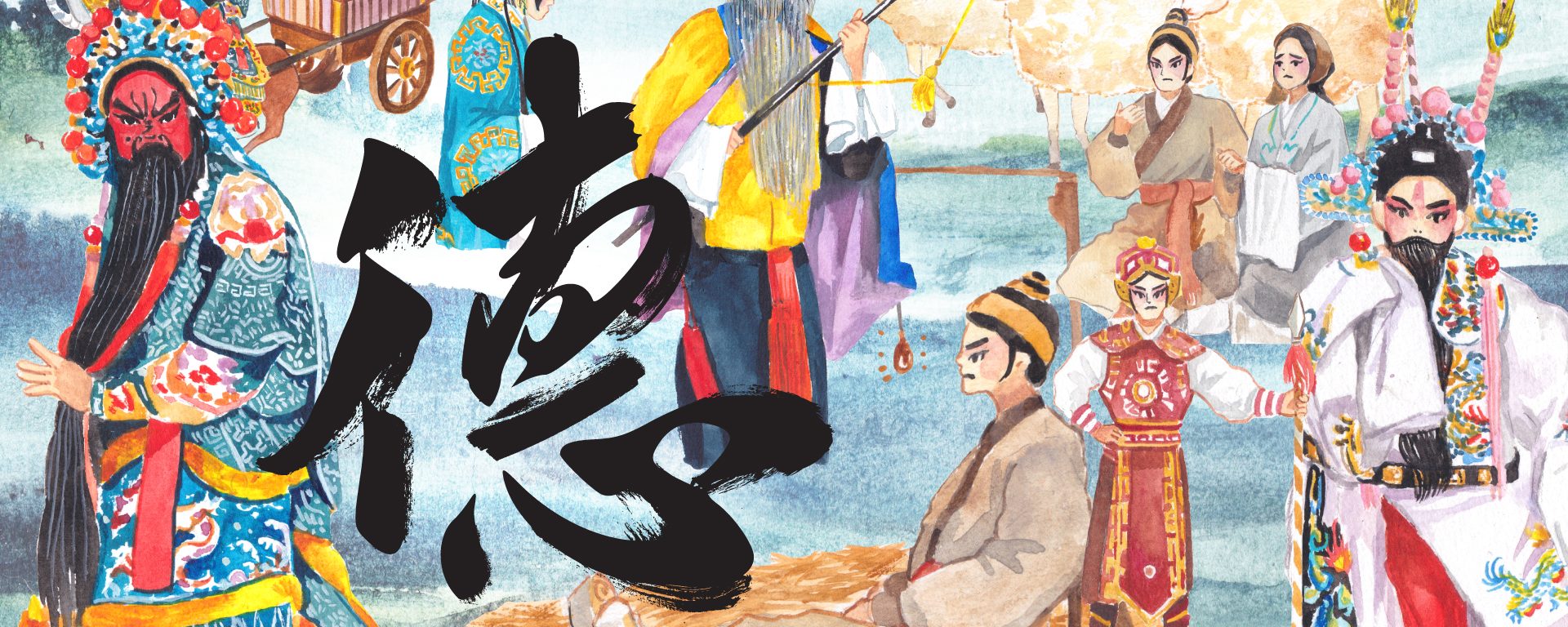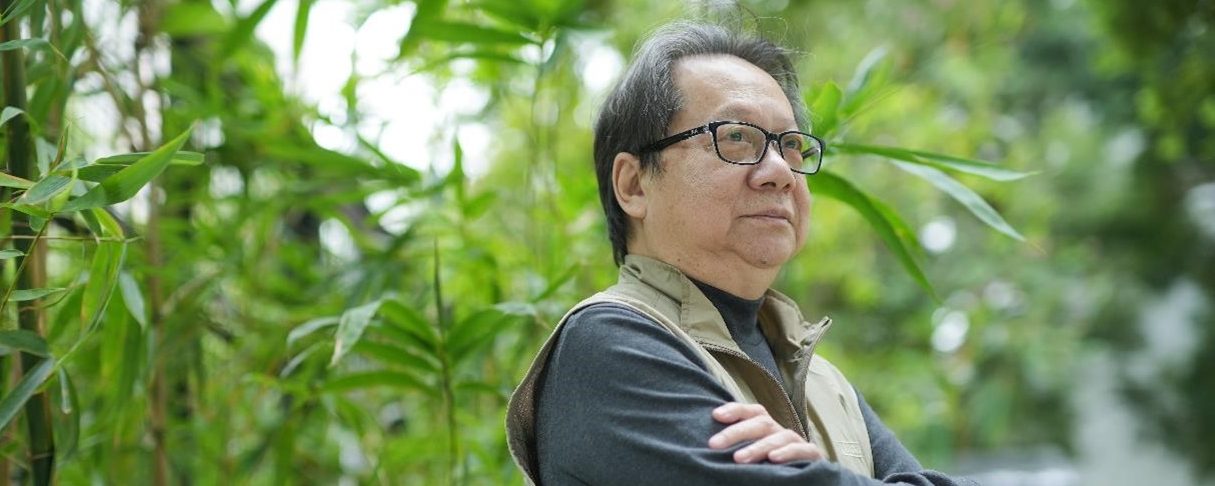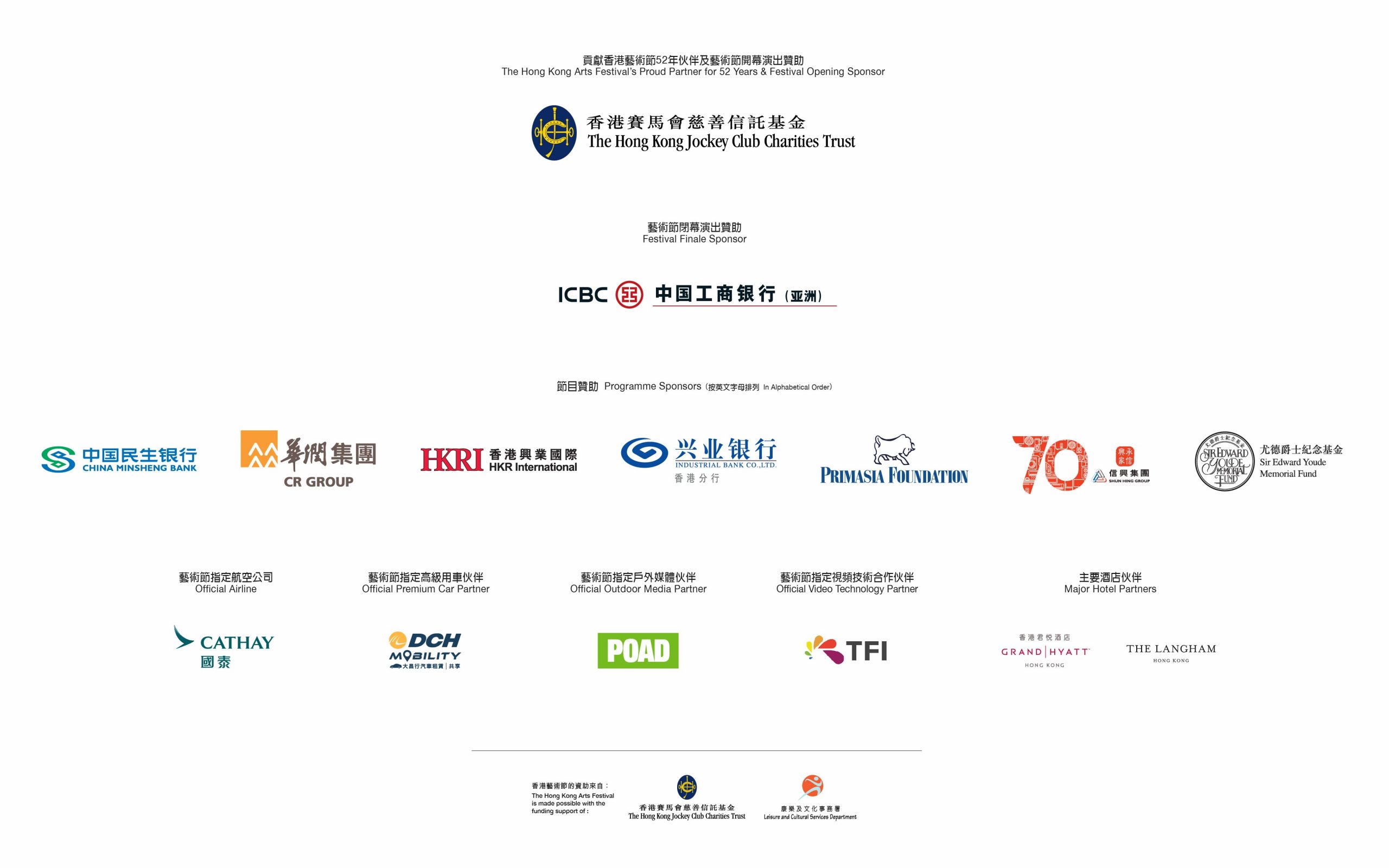On the stage sits a table with two chairs. Two performers skilled in the art of storytelling and musical performance are seated at the table, playing a xiao sanxian and a pipa respectively. They start reciting and singing classical Chinese literary tales. At times, one performer takes on multiple roles, while at other times they provide supplementary narration. From a contemporary perspective, they offer commentary on the plot and navigate the inner worlds of its various characters. With such an elegant, complex approach, it's no wonder that Gao Bowen, the director of the Shanghai Pingtan Troupe, describes this art form as a "well-adorned young lady".
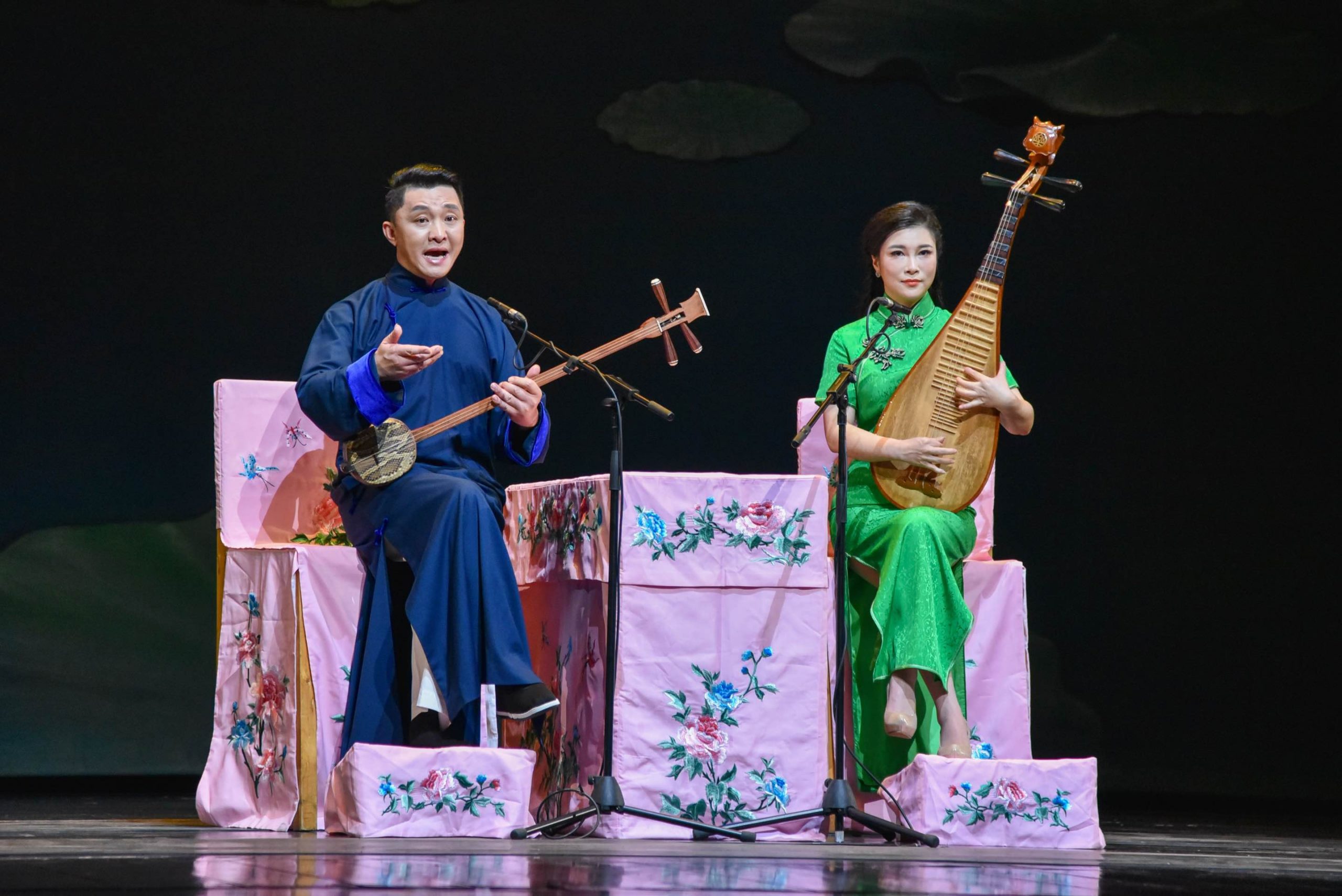
Pingtan, which originated in Suzhou during the Ming dynasty, is a storytelling and singing art form performed in the Suzhou dialect, known as the Wu dialect. The dialect is often described as the "soft speech of the Wu people", as it sounds gentle, melodious and emotionally rich. Gao, who has studied and practised pingtan for nearly 40 years, explains that in traditional performances, a storyteller could sing for two hours each day continually to complete a lengthy story. However, at the 52nd Hong Kong Arts Festival, the Shanghai Pingtan Troupe will take a more condensed approach for Dream of the Red Chamber: A Concert. This large-scale, comprehensive performance features an extensive lineup, including more than 10 pieces such as Lin Daiyu and Wang Xifeng, performed individually or by pairs of different actors and actresses. It's a showcase of the various styles and intonations of pingtan, aiming to accurately depict the characters' personalities. To engage and facilitate understanding for the Hong Kong audience, the troupe will also perform excerpts from well-known classic romantic plays such as The Legend of the White Snake, The Palace of Eternal Youth and Fatal Irony in separate programmes.
The concept of being "well-adorned" does not just refer to the performance style of pingtan—it also encompasses its musical qualities, with the potential for integration of genres such as jazz, rock and pop music. As the storyteller begins to speak, audience members will understand why there's no need for theatrical costumes, well-crafted props or elaborate sets. The mere sound of the performers' voices is enough to immerse the audience, transporting them back to the ambience of a Jiangnan-style garden or an ancient town. This atmosphere further allows pingtan to transcend linguistic barriers, attracting a wide range of people from diverse regions who may not understand the Wu dialect but are drawn to the charm of old Jiangnan.
"Language is a barrier, but not an insurmountable one," Gao points out. Despite the widespread use of Putonghua, which poses challenges to the preservation of regional dialects and the promotion of traditional local theatrical arts, the troupe has historically tailored its performances within mainland China for local audiences by, for example, using subtitles and adjusting the contents of the performances. For instance, when performing in Shanghai, more narration is used because the dialect is more widely spoken. And when performing in regions such as Northeast China or Guangdong, where the audience may not be at all familiar with the Suzhou dialect, it emphasises the musical aspects of the performances.
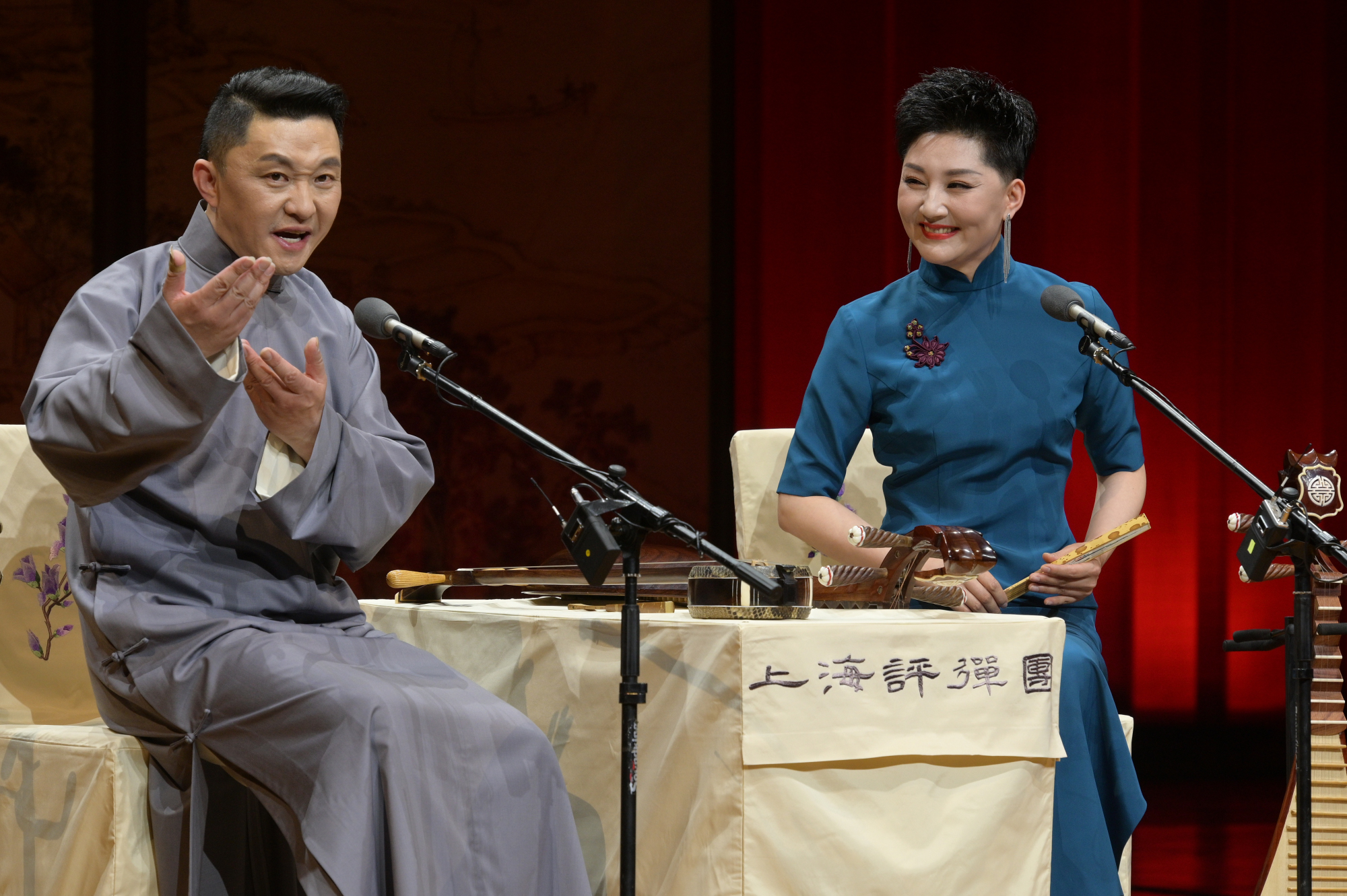
Gao was born in 1970 in Shanghai. And when looking back at his youth, you'll see that pingtan has always been an integral part of his life. Within the courtyards of traditional stone gate buildings, during dinner time, families would bring tables and chairs out to the alleys to enjoy the cooler air. They would listen to pingtan broadcasts on the radio while eating outside, and the melodies and voices would fill the air. Gao fully understands that technology has changed the way that families consume entertainment media while at home, and not many now visit teahouses to listen to pingtan. However, he does not believe that pingtan's popularity is waning. On the contrary, he is actively promoting it through various innovative methods, such as condensing the length of performances and bringing the art form to venues such as kindergartens and universities.
"In the past, they said the aroma of wine would reach even the depths of the alley. Nowadays, it's not the same. We must take the initiative to get out of the alley," he says. In recent years, he has adapted the popular mainland Chinese novel Flowers into a pingtan programme titled On Flowers—by Gao Bowen. He also collaborated with a mobile gaming company to create a scene for live performances in which players can simulate entering an antique Jiangnan teahouse and enjoy a new pingtan work titled Meeting You in a Dream, which features a pop music soundtrack. On its release, this piece quickly received more than a million views, and even attracted interest from other mobile gaming companies wanting to collaborate. All further evidence that under the guidance of the Shanghai Pingtan Troupe, tradition is no longer a burden, but rather a springboard for innovation.
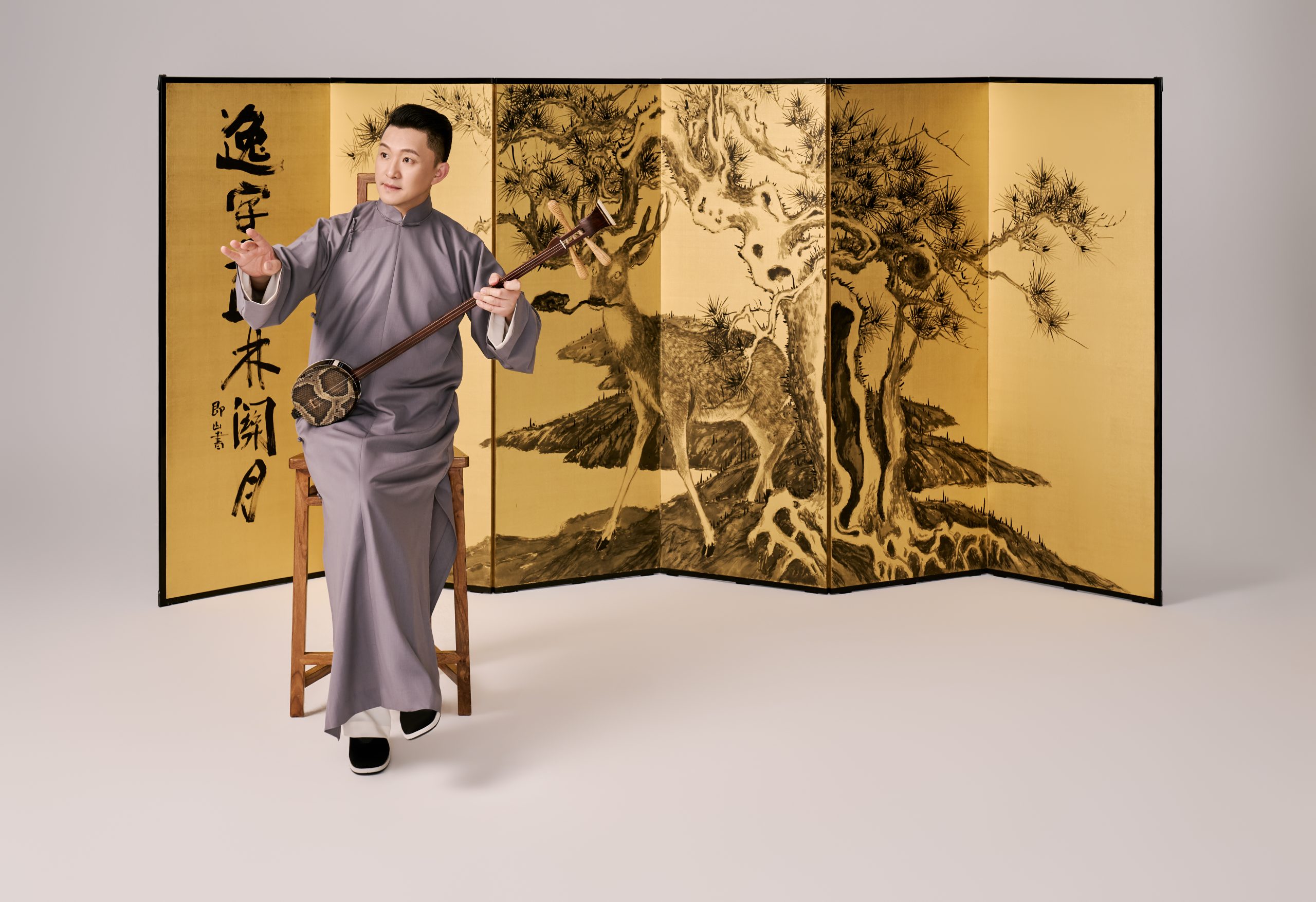
Shanghai Pingtan Troupe
Date:17-19 Mar 2024
Venue:Xiang Hai Xuan, Nan Lian Garden & Theatre, Hong Kong City Hall
Details: https://www.hk.artsfestival.org/en/programme/Shanghai_Pingtan_Troupe?
